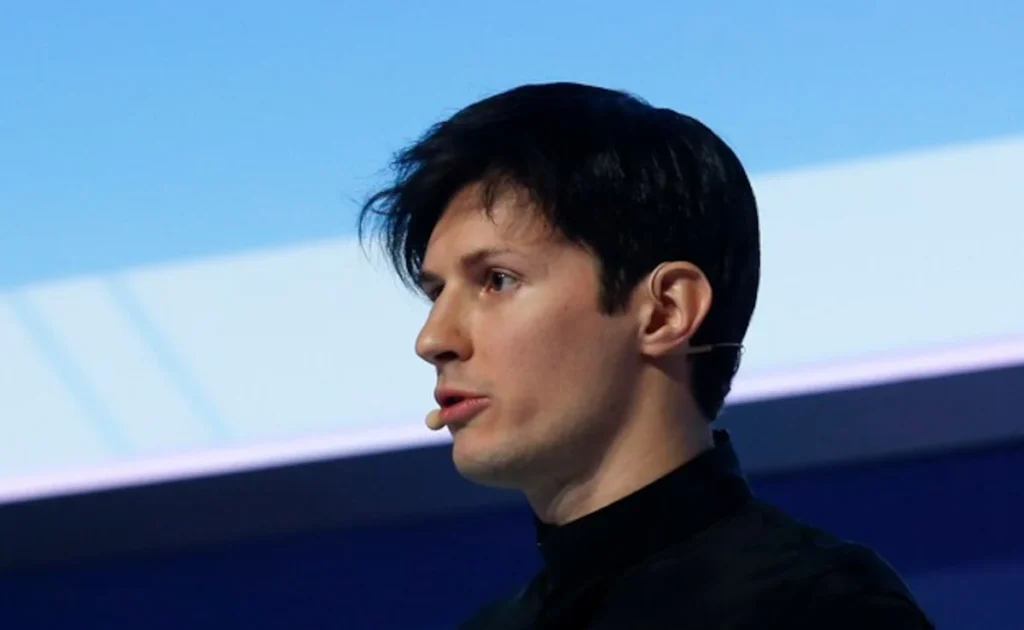Telegram CEO Pavel Durov, and influential founder, was recently arrested in Paris under serious allegations that his messaging platform is being exploited for illegal activities, including drug trafficking and the distribution of child sexual abuse material. This incident has drawn global attention, raising questions about Telegram’s operations and the legal responsibilities of tech CEOs.
What is Telegram? A Deep Dive into the Popular Messaging App
Telegram is a versatile messaging app that facilitates one-on-one conversations, group chats, and large channels where messages can be broadcast to a broad audience. Unlike its competitors, such as WhatsApp by Meta, Telegram stands out with its ability to host massive group chats with up to 200,000 participants, far exceeding WhatsApp’s limit of 1,024. This feature, however, has sparked concerns among experts about the potential for misinformation to spread rapidly within these large groups.
While Telegram offers encryption for communications, it’s important to note that this feature is not enabled by default. Users must manually activate encryption, and even then, it does not apply to group chats. This is a stark contrast to other messaging platforms like Signal and Facebook Messenger, where end-to-end encryption is the default setting. Despite these limitations, Telegram has amassed over 950 million active users worldwide, becoming a prominent communication tool in various countries, including France, where it is used by government officials.
The Origins of Telegram and Its Controversial Founder
In 2013, Pavel Durov and his brother Nikolai founded Telegram. Pavel Durov, a Russian-born entrepreneur, has a complex background. He spent much of his childhood in Italy and holds citizenship in multiple countries, including France, Russia, St. Saint Kitts and Nevis and the United Arab Emirates. Before founding Telegram, Durov created VKontakte (VK), Russia’s largest social network. However, his relationship with the Russian government soured after he refused to comply with demands to suppress online communities of opposition activists. This tension escalated to the point where Durov sold his stake in VK and left Russia in 2014.
Durov has said Dubai is “the best place for a neutral platform like ours to be in if we want to make sure we.” To protect the freedom of speech and privacy of our users, Telegram has moved its headquarters there.” This declaration demonstrates Durov’s continued dedication to free speech and privacy in the face of growing government scrutiny of his platform.
Why Was Pavel Durov Arrested? The Legal Battle Explained
Durov’s arrest in Paris is part of a broader judicial inquiry that began in France last month. The investigation involves 12 alleged criminal violations, including complicity in the distribution of child sexual abuse material, drug trafficking, fraud, abetting organized crime transactions, and refusing to cooperate with law enforcement. As of Tuesday morning, Durov had not been formally charged but was still being held for questioning. By Wednesday evening, French judges must decide whether to charge him or release him.
This arrest has triggered a wide range of reactions, both in Russia and globally. Russian officials have expressed outrage, with some accusing Western governments of political motivations and double standards regarding freedom of speech. The controversy is particularly striking given that Russian authorities attempted to ban Telegram in 2018, only to lift the ban in 2020 after failing to enforce it effectively.
Global Reactions and Support for Durov
The arrest has also garnered attention from influential figures like Elon Musk, who has voiced support for Durov by posting “#freePavel” on social media. Musk, who has dubbed himself a “free speech absolutist,” argues that it is unreasonable to hold a platform or its owner accountable for the misuse of that platform by its users. Telegram, in a statement following Durov’s arrest, echoed this sentiment, emphasizing that it serves almost a billion users worldwide as a crucial communication tool and source of information.
Does Telegram Effectively Moderate Content? A Closer Look
Telegram’s content moderation practices have long been a subject of criticism, especially from Western governments. Critics argue that the platform’s lax approach to moderation makes it vulnerable to being exploited for illegal activities, such as money laundering, drug trafficking, and the sharing of child sexual abuse material. According to David Thiel, a researcher at Stanford University’s Internet Observatory, Telegram is “less secure and more lax in terms of policy and detection of illegal content” compared to other messaging platforms. For instance, while WhatsApp submitted over 1.3 million reports to the CyberTipline in 2023, Telegram reportedly submitted none.
This lack of responsiveness to law enforcement has led to legal actions in several countries. In 2022, Germany fined Telegram 5.125 million euros for failing to comply with local regulations, including the requirement to establish a lawful way for reporting illegal content. Similarly, Brazil temporarily suspended Telegram last year due to its failure to cooperate with an investigation into neo-Nazi activity linked to school shootings.
The Future of Telegram and Its Controversial CEO
As the legal proceedings against Pavel Durov unfold, the future of Telegram remains uncertain. The platform’s role in facilitating free communication while being accused of enabling criminal activities puts it at the center of a global debate on privacy, freedom of speech, and corporate responsibility. Durov’s arrest may be just the beginning of a broader reckoning for Telegram and other tech platforms facing similar scrutiny.
The world is watching closely to see how this case will develop and what it will mean for the future of online communication and digital privacy.
Conclusion
So, in today’s article, we explored the Pavel Durov, the founder and CEO of Telegram. If you found this article helpful in any way, please let us know in the comments. Be sure to follow CNA Times.
(You can now subscribe to our CNA Times WhatsApp channel)
I am Praveen Kumar, a 21-year-old passionate about writing and staying informed. On CNA Times, I bring the latest news and updates, offering readers accurate and insightful information with my expertise and dedication.

